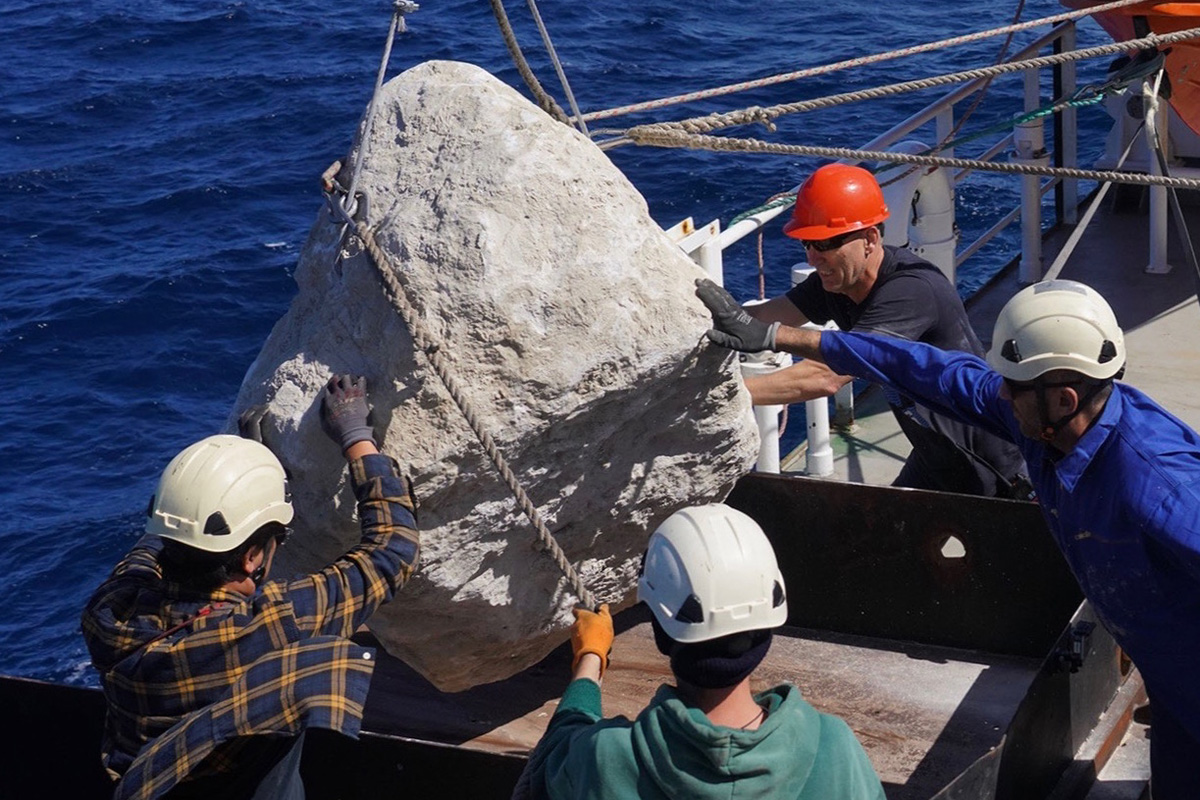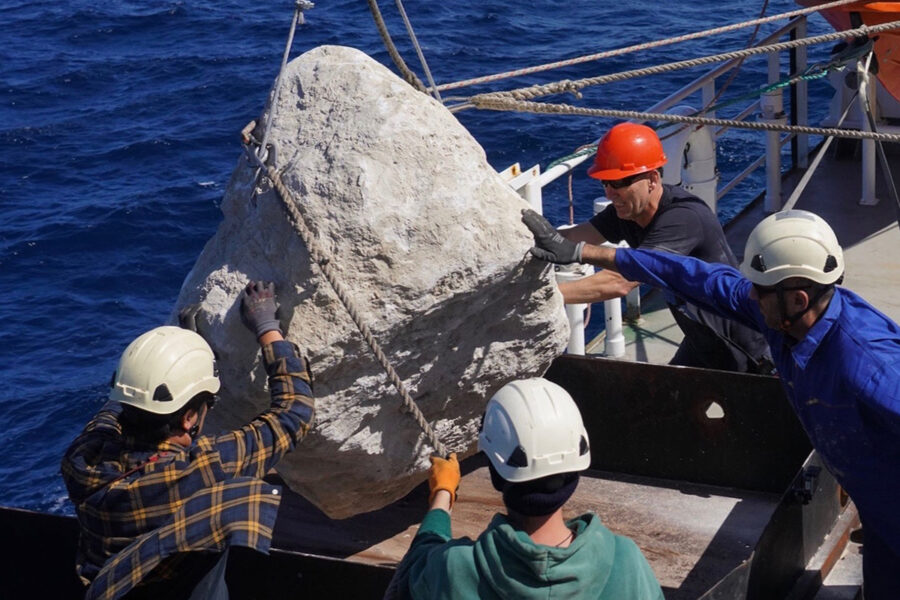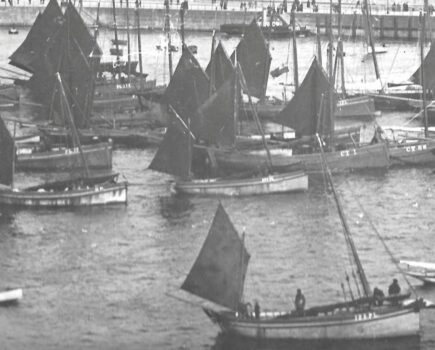Solicitor and qualified fisher Jo Pummery shares inside information on how to navigate the regulations
In September, a further Greenpeace boulder drop went ahead in the South West Deeps (Fishing News, 15 September, ‘Spot the rock: New Greenpeace stunt in SW Deeps’).
Fortunately for fishers, this was in much deeper water than the previous incident, so it is anticipated there will be minimal impact on fishing as a result.
The 2021 drop in the Brighton MPA is of greater concern, as boulders were dropped in shallower depths of around 40m.
These boulders are not fixed to the ocean floor and, whilst initial location co-ordinates have been provided (these can be obtained by emailing: service@mantsbrite.com), the boulders will be subject to forces including swell and tidal movement, and some have suggested they may not remain stationary. If this proves to be the case, the migrating boulders may pose an additional potential source of danger to fishers working in the relevant areas.
Section 65 of the Marine and Coastal Access Act 2009 requires a marine licence to be granted to anyone who wishes to carry out ‘a licensable marine activity’. Section 66 confirms that all vessels, aircraft or structures, regardless of their country of origin, will need a licence to deposit, scuttle or incinerate any object or substance within the UK marine licensing area.
By virtue of section 85, it is an offence to engage in a licensable activity without the necessary licence. A person guilty of an offence is liable on summary conviction to a fine of up to £50,000 and on conviction on indictment to a fine, imprisonment of up to two years, or both. A criminal prosecution for operating without a licence was brought by the MMO in relation to the 2021 boulder drop in the Brighton MPA. Despite finding that the MMO had jurisdiction to prosecute, the case was formally withdrawn in January 2022, after the judge confirmed his view that the case did not meet the public interest threshold. There has been criticism of the judge’s comments, with some considering he had potentially exceeded his legal authority in his handling of the case.
In September, the MMO relied on sections 65 and 66 of the Marine and Coastal Access Act to prevent Poole Harbour Commissioners from assisting a planned illegal activity – effectively threatening them with potential criminal charges if they allowed the loading of the boulders onto the Greenpeace vessel.
There are now boulders located in four offshore sites. This raises the question of whether there could be any civil liability for the illegal placing of the boulders, should an incident occur as a direct result of contact with one of them. It is for the claimant in a civil claim to prove their case, and therefore evidence would have to be obtained which showed that it was more likely than not that the boulder caused the incident.
For instance, a fully licensed MFV might be fishing along a tow within an MPA. The vessel would need to be explicitly permitted to fish in the area – which the skipper would be likely to consider to be safe ground. If the vessel’s nets came fast against a boulder which had moved its location, there is potential for the vessel to be swamped and sink before the emergency release could be activated.

The South West Deeps boulders, despite the hype, were dumped in water so deep as to be neither a hazard nor a deterrent to trawling – but the boulders from the 2021 Greenpeace action in the Brighton MPA present a potential marine hazard. (Photo: Greenpeace)
In such circumstances – where the skipper has done everything correctly but the vessel has still succumbed – the owners, crew and/ or dependants might consider whether they had a civil claim against the party which put the boulders in the sea in the first place.
Under the Marine and Coastal Access Act, there are civil sanctions found at Part 4 and Schedule 7. These in the main relate to fixed monetary sanctions, which remove a person’s liability to criminal prosecution for an act of non- compliance. These civil sanctions are for use by enforcement authorities, and are not what we are considering here.
This is uncharted territory (no pun intended) as, unsurprisingly, there is little case law dealing with the subject of someone deliberately setting out to create a marine hazard. A claim might be pursued on the basis that the dropping of the boulders was negligent, by creating a source of danger. Negligence constitutes an act which falls short of the standard to be expected of a reasonable person. It is necessary to establish that a duty of care was owed, that the duty was breached, that the loss claimed was caused by the breach of duty, and that it was a foreseeable consequence of the breach of duty.
Alternatively, an argument could be put forward that the action constituted an intentional tort. This is a wrongful act in which harm or injury is caused to another person or their property. It would be necessary to demonstrate that the defendant acted with the specific intent to perform the act that caused the injuries or damage. The defendant does not have to know that injuries would occur as a result of the act, just that the act was subject to consequences – i.e. it could cause harm. It would have to be shown that but for the defendant’s action, the damage would not have occurred.
There may also be a claim in public nuisance, which can give rise to a civil claim in damages where an unlawful act or omission endangers or interferes with the lives, comfort, property or common rights of individuals or businesses.
Whilst all cases would be fact-specific, we can foresee a civil case in one form or another being contemplated should an incident causing damage or injury occur as a direct result of boulders being illegally placed in the sea.
Jo Pummery, a solicitor with the specialist marine law firm Bartons, is a qualified new-entrant fisher who has been to sea on several commercial fishing trips.
Bartons is an award-winning law firm that also specialises in fishing-related personal injury matters and in the sale and purchase of fishing vessels, as well as representing fishermen, owners and fish producers in MMO, IFCA, MCA or HSE interviews and investigations.
To discuss any fishing-related legal issues, please call Jo or the team on: 01752 675740.
Further details can be found here.
This story was taken from the latest issue of Fishing News. For more up-to-date and in-depth reports on the UK and Irish commercial fishing sector, subscribe to Fishing News here or buy the latest single issue for just £3.30 here.








